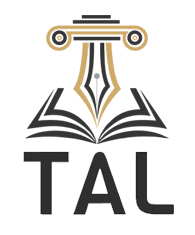RESEARCH PROJECT: VIABILITY OF SPECIAL PURPOSE ACQUISITION COMPANIES (SPACs) IN INDIA: DEMYSTIFYING SPACs FOR INVESTORS AND INDIAN COMPANIES

RESEARCH PROJECT: VIABILITY OF SPECIAL PURPOSE ACQUISITION COMPANIES (SPACs) IN INDIA: DEMYSTIFYING SPACs FOR ACQUISITION AND INDIAN COMPANIES
OBJECTIVES OF THE RESEARCH
The underlying aim of this research is to determine the viability of introducing SPACs in India
under three heads, i.e., associated advantages for the concerned parties, associated risks for the
concerned parties, and regulatory concerns. Thereafter, it seeks to conclusively answer on the
viability of SPACs, mainly for the start-ups, and recommend changes, suggest checks & balances
in the regulatory framework to enable the practical SPAC transactions. The ancillary analysis of
the draft regulations proposed by IFSCA and the feasibility of a domestic SPAC proposal have
been undertaken in furtherance of the basic aim of this study. We believe it is incumbent to
spread awareness about investment proposed by SPACs along with the risks involved, to ensure
that only the investors and the companies having the requisite risk management shall indulge in
the SPAC transactions.
SUMMARY
SPACs are becoming more popular these days because of their special qualities, which make
them different from traditional IPOs. It is commonly known as the blank cheque company. They
are one of the shorter ways to global listings. The popularity of SPACs is increasing day by day,
which makes the people of India accept it and try it as an alternative to that of the traditional IPO
for raising their capital with the help of the target companies. It is also said to be the best method
for start-up companies as it is less costly than that of traditional IPOs and contributes much to the
global economy of the country. But the drawback is the rules regarding the SPACs listing in
India, which acts as a hurdle for people to follow the SPACs route in place of traditional IPO.
Along with the lack of regulatory framework, there is also the risk associated which makes it a
little difficult to practice. But if there are changes made in the regulatory concerns regarding
SPACs then it may help in the development of the economy of the country as with disadvantages
there come advantages too. After analyzing and observing the above issues and points we can
conclude that despite having more advantages of SPACs we cannot consider it as a viable option
till the time there are some leverages given to the Indian shareholders regarding the working of
SPACs. But if we have a SPACs like structure in India, then it will help the people and boost the
economy as well but for that, it is important to make some changes in the regulatory framework
for the smooth and better functioning of the same while having transparency throughout. There is
a requirement for a regulatory framework accommodating the possibility of various transactions
for better understanding.
